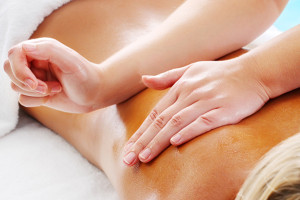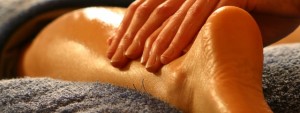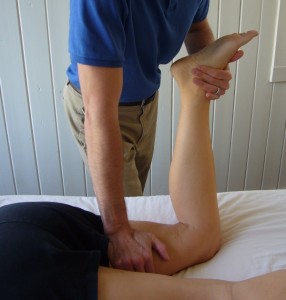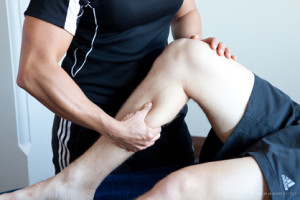
What is “Sports Massage”?
“Massage” is defined as “the manipulation of the soft tissues of the body for therapeutic purposes. The overall aim of Sports Massage is to enhance performance by speeding recovery, protecting against injury, increasing suppleness and reducing “niggles” from overuse due to training.
To deliver Sports Massage competently, an in depth knowledge and of anatomy and physiology is required together with a thorough understanding of the pathology of injuries.
Carole Page qualified with a Level 5 Diploma in Sports & Remedial Massage from the London School of Sports Massage in February 2015, which is the highest level qualification in Sports Massage available. In addition her background of 20 years experience as a full time veterinary surgeon has many transferable skills.

The uses and benefits of Sports Massage
1. Protects against overuse injuries. Regular or intermittent hard training will result in sore muscles due to micro-trauma of the individual muscles fibres. Areas of tension build up within the muscle around these damaged areas to protect them and with constant and repetitive overuse the areas enlarge with central scar tissue. Eventually the reduced elasticity of these areas will lead to more severe damage in the form of muscles strain or even rupture. Massage reduces these areas of tension and protects against injury, facilitating recovery from training and protecting against overuse.
2. Promotes recovery from training. Training results in the build-up of waste products of metabolism and fluid within the muscles. Massage helps to remove these waste products by physically flushing them out of the muscles. . Massage will stimulate the circulation, forcing blood through the small vessels and to the muscles tissues, increasing the permeability of the cell membranes and reducing the accumulation of interstitial fluid by forcing it back into the circulation, thus reducing post-exercise muscle swelling. Swollen tissues have restricted circulation due to increased hydrostatic pressure so reduced swelling improves circulation and aids recovery.
3. Increased muscle suppleness. Muscle tissue has, amongst other properties, the properties of elasticity and extensibility. Muscles which have adhesions either within the muscle belly between individual muscle fibres will have restricted movement. These restrictions reduce the ability of the muscles to contract and relax and increases their susceptibility to injury. Massage helps to break down these adhesions and assists muscle movement and protects against injury.
4. Corrects malalignment of tendon pull. Tension within any muscle will reduce its length and alter the line of pull of the tendon from that muscle. An example might be an imbalance between the quads either side of the kneecap, pulling the kneecap towards the tighter muscle and creating knee pain as the kneecap no longer runs in the centre of the joint. Massage can identify and reduce this muscle tension and alleviate the knee pain.
5. Correct postural imbalances. Many occupations create postural changes over a long period of time which lead to soft tissue problems. A common example is that of the office worker who sits for many hours at a computer screen and develops protracted shoulders, cervical lordosis, thoracic kyphosis and reduced lumbar lordosis, leading to many problems. Once the muscles have adjusted to this posture, e.g. chronically contracted pectorals, the person cannot simply adopt the correct posture without stretching of the abnormally tight muscles, and massage can help to achieve this and thus correct postural abnormalities
6. Recovery from surgery. Surgery for fractures and dislocations or other orthopaedic procedures such as hip replacement cause major muscle trauma and resultant scar tissue. Massage prior to surgery and in the weeks following the immediate post-surgical period will reduce scar formation and assist in return to use.
7. Assistance with stretching. Some muscles can be stretched passively by the individual e.g. 3 different calf stretches to target these extensors of the ankle. Some muscles cannot easily be stretched in this way e.g. anterior tibial, piriformis and so the therapist can stretch these muscles by actively applying pressure to the muscle.
8. Improved self-awareness. The recipient of massage will become more aware of their own body i.e. how the muscles feel after training, areas of tightness or soreness indicating muscle trauma, imbalances between muscles or muscle groups, areas of pain or swelling which require time to rest, which muscles tire under which circumstances, how frequently they can train hard, how to stretch effectively etc etc. Thus they can fine tune their training to achieve more and reduce injury.

9. Mental well-being. Many people suffer from chronic mental ill-health due to stress from occupational or personal issues. Massage can assist in stress relief, both from reduction of muscle tension secondary to stress but also from the mental relaxation that massage can bring. Another aspect of mental stress is that those who are most driven to succeed in their professional lives are often driven in their “leisure” too i.e. as high achievers those who choose sport and athletic pursuits will aim high. Marathon runners, triathletes and competitive racket sport players are over-represented in this group. For these people sport is a mechanism of coping with their daily working lives, they push themselves to the limit as in their professional lives and they can suffer severely if injury curtails their participation or level of achievement. If massage can keep them active and injury-free the benefits are much wider-ranging than just physical.
In summary, the many benefits of massage combine to assist in reducing injury, aiding rapid recovery from training and promoting physical and mental well-being. Overall, these effects lead to the ultimate aim which is to enhance performance.

Treatment costs are:
1 hour treatment: £55
40 minute treatment £40
30 min treatment: £30
Treatment is provided in a specially equipped and private room with toilet and shower available for client use. The couch is transportable and so Carole can attend events and other sites should that be appropriate.

For further information or bookings please contact Carole on 07775 901304 or 01665 479721 (leave a message) or email carole@physicality.info.
